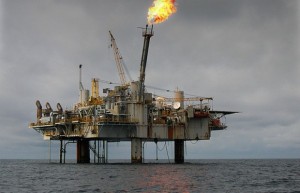Libreville (Reuters) – Gabon will apply a more transparent and rigid oil law in early 2015 and may revoke licences of companies that do not respect contractual obligations, its oil minister said, revealing a delay in legislation previously expected this year.
The central African country, which is looking forward to a jump in oil output following a major offshore discovery this year, had earlier indicated that parliament would pass the new law by the end of 2013.
“We are committed to a new and transparent direction,” the minister, Etienne Ngoubou, said on Thursday, referring to the prospective law. He said it would apply to contracts from January 2015 and did not give a reason for the delay.
Gabon has sought tougher terms for foreign oil companies operating there and launched audits of oil producers, executives have said.
Libreville has said the newly-created Gabon Oil Company was entitled to a stake of up to 15 percent in oil blocs owned by other companies.
A source at France’s Total, one of the largest producers operating in Gabon, said the new 2015 target date for the law was unsettling, as it left more time for current government thinking to change.
“The fact that the government has delayed the publication is making us nervous,” the source said.
Gabon revoked the Obangue licence of Sinopec subsidiary Addax in January after an alleged breach of contract. Addax has denied the allegations against it and the case is before the International Chamber of Commerce’s arbitration court.
“If other companies don’t respect their obligations, they will also risk losing their contracts,” Ngoubou said.
Gabon currently pumps close to 230,000 barrels per day (bpd), down from a peak of around 370,000 bpd in 1997.
It hopes for a revival in production following a Total discovery beneath a salt layer in offshore waters in August and says it expects production to reach 500,000 bpd.
In October, it awarded 13 oil and gas blocks to 11 companies as part of a major deepwater licensing round.
As production rises, Ngoubou said the country would consider seeking membership of the Organization of the Petroleum Exporting Countries, a body it left in the 1990s.
“We aren’t ruling out joining OPEC. But it’s up to the President (Ali Bongo) to decide,” he added.



